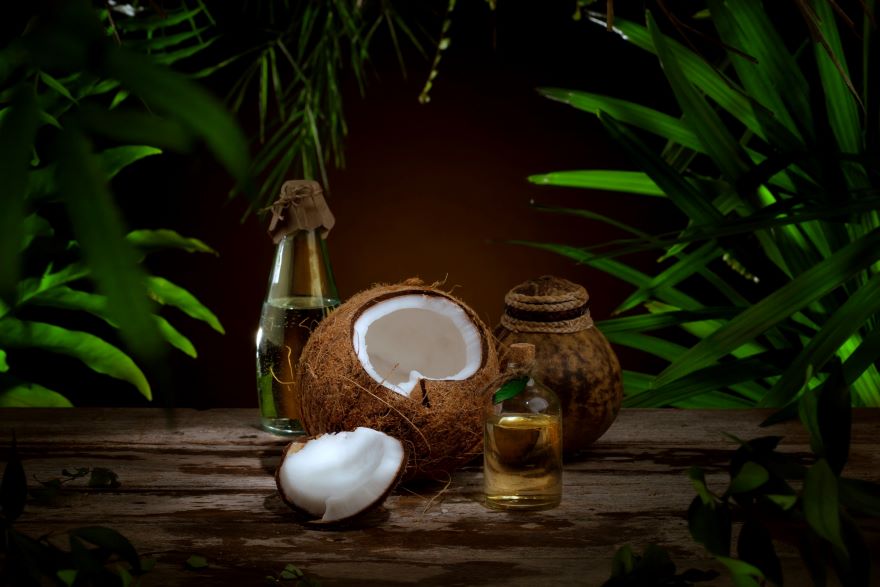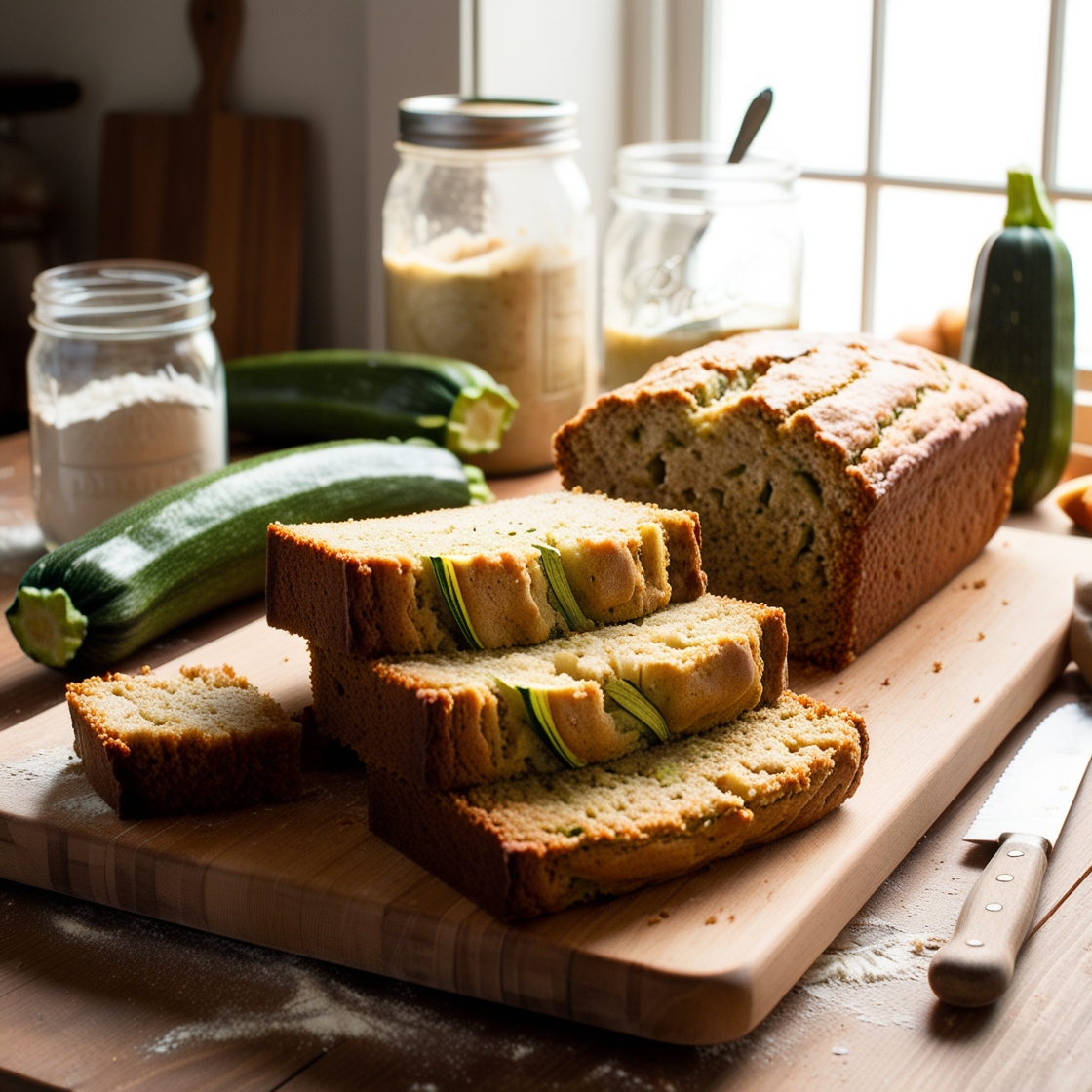Coconut oil and white vinegar are two versatile and natural ingredients that have been used for centuries in various home remedies, beauty treatments, and household cleaning applications. Coconut oil, derived from the meat of mature coconuts, is known for its numerous health benefits and uses in skincare, haircare, and even cooking. On the other hand, white vinegar, made from distilled fermented alcohol, is a popular choice for eco-friendly cleaning and can also be used in various food recipes.
When combined, coconut oil and white vinegar offer an effective and natural solution to various problems related to health, beauty, and home care. From removing stubborn stains to nourishing dry skin, this powerful duo can work wonders in multiple areas of our daily lives. With a wealth of uses and benefits, it’s no wonder that these two simple ingredients have become essential staples in many households.
Key Takeaways
- Coconut oil and white vinegar have a multitude of uses and benefits in health, beauty, and home care.
- This powerful duo can effectively tackle issues related to skincare, hair care, and cleaning when combined.
- With their natural properties, coconut oil and white vinegar offer an eco-friendly alternative to many mainstream products.
Benefits of Coconut Oil
Digestion and Weight Loss
Coconut oil has been praised for its potential benefits to digestion and weight loss. It contains medium-chain triglycerides (MCTs) which are processed differently than other fats by the body. MCTs are quickly absorbed and converted into energy, which may help increase metabolism and promote satiety. This can help with reducing appetite and calorie intake, potentially leading to weight loss.
Hair and Skin Care
I’ve found that coconut oil has multiple uses for hair and skin care. It’s rich in antimicrobial and antioxidant properties, which may help improve skin health and reduce inflammation. When applied topically, it acts as a natural moisturizer that can alleviate dry skin and soothe conditions like eczema.
For hair care, coconut oil provides deep conditioning and can help reduce protein loss, leading to stronger and healthier hair. It also has a natural SPF of around 8, offering some protection from the sun’s rays.
Cooking and Baking
Coconut oil is an excellent option for cooking and baking due to its unique composition and high smoke point, making it suitable for high-heat cooking methods like frying. Its distinct flavor can complement various dishes and add an interesting taste to baked goods.
In addition to its culinary uses, coconut oil can also be used as an effective natural lubricant. However, it’s important to note that it can degrade latex, so alternative lubricants should be considered when using diaphragms or condoms for protection.
One thing to consider when incorporating coconut oil into your diet is its high saturated fat content, which might impact blood lipid levels when consumed in large quantities. It’s essential to monitor your intake and consult with a healthcare professional if you have concerns about incorporating coconut oil into your lifestyle.
Understanding White Vinegar
Cleaning Solutions
White vinegar is a versatile and eco-friendly cleaning solution that I often use around my home. It has a nice neutral smell and is powerful enough to tackle dirt, grime, and mildew. It’s particularly useful for cleaning glass surfaces, cutting through soap scum in the bathroom, and even helps in deodorizing laundry. Not only is it effective, but it’s also incredibly cost-effective as a little goes a long way.
When using white vinegar for cleaning, I typically combine equal parts of vinegar and water in a spray bottle. For tougher stains or areas that need a deeper clean, I sometimes increase the concentration of vinegar in the solution.
Common Uses in Food
In addition to its cleaning abilities, white vinegar also holds a special place in my kitchen. Its acidity adds a zesty flavor to dishes, making it a popular ingredient in salad dressings, marinades, and even some baked goods.
As a salad dressing, I typically mix white vinegar with olive oil, salt, and pepper. The vinegar adds tanginess to the dressing, balancing the richness of the oil and enhancing the flavor of the greens.
When it comes to marinades, I often use white vinegar to help tenderize and infuse flavor into the meat. The acidity of the vinegar breaks down proteins in the meat, making it more tender and allowing the flavors of the marinade to penetrate deeper. This works especially well with chicken and pork dishes.
Overall, white vinegar is an essential ingredient both for cleaning and in the kitchen. Its many uses and benefits make it a staple in my home.
The Power of the Duo
Coconut Oil and Vinegar for Health
I’ve found that the combination of coconut oil and white vinegar offers numerous health benefits. When mixed together, they create a healthy salad dressing that enhances the flavor of my meals. Coconut oil is known for its antibacterial properties, while white vinegar has detoxifying effects that promote overall wellness. By incorporating this duo into my diet, I am enjoying not only a delicious taste but also improved health.
Practical Household Uses
In my home, coconut oil and vinegar serve as eco-friendly alternatives for cleaning and household chores. For example, when mixed together, they create a versatile, all-purpose cleaner that effectively removes scuff marks and shines household surfaces. Coconut oil can also be used to polish wooden furniture and metal items, while vinegar helps remove stubborn stains. By using these two natural ingredients, I avoid the harsh chemicals often found in commercial cleaning products and protect the health of my family and the environment.
Beauty and Personal Care
For my beauty and personal care routine, I’ve discovered that coconut oil and white vinegar can work magic on both face and hair. To create a nourishing hair mask, I mix equal parts of coconut oil and white vinegar, apply it to my hair, and leave it on for 30 minutes before rinsing thoroughly. This mask helps repair damaged hair, reduce frizz, and promote healthy hair growth 1.
For my face, I’ve found that a mixture of coconut oil and white vinegar can be used as a natural makeup remover, gently lifting makeup and grime without causing irritation. Additionally, it can be used as a facial toner to help balance the skin’s pH levels and improve its overall appearance.
In conclusion, the power of the duo – coconut oil and white vinegar – truly benefits my health, home, and beauty routines, offering a multitude of practical and effective uses.
Myths and Facts
Tiktok and Viral Myths
I have come across various Tiktok videos and viral internet claims that tout coconut oil as a miracle substance with infinite health benefits. However, we should be cautious when believing these claims without proper evidence. Some myths that have spread include the idea that coconut oil can significantly reduce waistlines, cure numerous ailments, and even support heart health. It’s important to differentiate these viral myths from scientifically proven facts.
Scientifically Proven Benefits
On the other hand, there are genuine health benefits to using coconut oil and white vinegar. When it comes to coconut oil, it is high in saturated fat, but not all saturated fats have the same effects on our bodies. For instance, coconut oil contains a significant amount of medium-chain triglycerides (MCTs), which can provide a quick source of energy for the body and may help in weight management when consumed in moderate amounts. However, it is crucial to remember that moderation is key, as excessive consumption can still lead to weight gain and other health problems.
As for white vinegar, it is a natural remedy with a variety of household and personal uses. Combining the two ingredients can have some positive effects on your health and even your home.
Overall, with regard to coconut oil and heart health, the scientific literature emphasizes the importance of considering all cardiovascular risk factors before making conclusions about the benefits of coconut oil consumption. While there is still much to learn about this natural ingredient, it’s essential to rely on sound scientific information rather than viral hacks and myths.
DIY Recipes
Home-made Dressings
I’ve come across a delightful White Balsamic Coconut Vinaigrette recipe that you can easily prepare at home. This dressing is perfect for adding a tropical twist to your salads.
To make this dressing, you will need:
- 6 tbsp Coconut White Balsamic Vinegar
- 1/4 cup lemon juice
- 1 tsp pure maple syrup
- 2 tsp Dijon mustard
- 6 tbsp extra virgin olive oil
To prepare, simply put all the ingredients in a mason jar or any container with a lid, shake well until combined, and enjoy on your favorite salad!
Skin and Hair Masks
Coconut oil and white vinegar can also be combined to create natural remedies for skin and hair care. Here is a simple hair mask recipe for added shine and reduced frizz:
Ingredients:
- 2 tbsp coconut oil
- 2 tbsp white vinegar
- 2 tbsp honey (optional)
Instructions:
- Mix coconut oil, white vinegar, and honey in a small bowl.
- Apply the mixture to your damp hair, focusing on the ends.
- Leave the mask on for at least 15 minutes or overnight for a more intense treatment.
- Rinse thoroughly with lukewarm water and shampoo your hair as usual.
I’ve also discovered a natural skincare recipe that combines the benefits of coconut oil and vinegar. This facial mask helps rejuvenate the skin and reduce inflammation.
Ingredients:
- 1 tbsp coconut oil
- 1/2 tbsp apple cider vinegar
- 1/2 tbsp raw honey
Instructions:
- Mix the coconut oil, apple cider vinegar, and honey in a small bowl.
- Apply the mixture to your face and allow it to sit for 15-20 minutes.
- Rinse off with lukewarm water and pat your face dry.
These DIY recipes showcase the versatility and benefits of combining coconut oil and white vinegar. Try them out for yourself to experience the difference it can make to your salads, skin, and hair!
Conclusion
I’ve discovered that incorporating coconut oil and white vinegar into my daily routine can provide numerous benefits for my health and home. Both ingredients have been proven to be versatile and effective in their respective applications.
Regarding health benefits, coconut oil and vinegar can have a thermogenic effect, increasing the body’s calorie-burning process for more efficient fat loss over time. Moreover, coconut vinegar is also a rich source of nutrients and probiotics, as well as polyphenols, contributing to better health overall.
As for household applications, I’ve found that these two ingredients can be used effectively for various tasks around the home. For instance, a mixture of coconut oil and vinegar can be applied to scratched areas on a car’s surface, making the scratches less noticeable without causing any additional damage.
In conclusion, as someone who values efficient and natural solutions, I can confidently say that having both coconut oil and white vinegar at hand has been of great benefit to my health and home maintenance tasks. While it’s essential to use these products responsibly and monitor results, their versatility and effectiveness cannot be understated.
FAQs
In my experience with using coconut oil and white vinegar, I’ve found that they are versatile and effective natural remedies for various applications. I wanted to share some frequently asked questions about these products to help you understand their benefits and uses.
One common question is, “Can coconut oil and white vinegar be combined for use on the skin?” White vinegar and coconut oil can be mixed to create a gentle and natural moisturizer. However, be sure to perform a patch test before applying any mixture to your face, as vinegar can be acidic and may irritate sensitive skin. For a simple homemade moisturizer, combine equal parts coconut oil and white vinegar and apply the mixture to your skin.
Another question is, “Is it safe to use white vinegar to clean cast iron pans?” While vinegar is a popular cleaning agent, it’s not advised to clean cast iron pans with white vinegar. This is because vinegar is acidic and can strip the seasoning off cast iron pans, leading to rust. Instead, use a mild dish soap and warm water to clean your cast iron pans.
Often, people ask, “How can I clean sticky residues with the help of coconut oil?” Coconut oil is excellent for removing stubborn labels and sticky residues on various surfaces. To clean sticky residues, apply coconut oil to the affected area, allow it to penetrate, and then scrub with baking soda. You can also make a paste by mixing equal parts coconut oil and baking soda, apply it to the residue, and then gently scrub it off (source).
Frequently Asked Questions
Can coconut oil and vinegar help with car scratches?
Yes, coconut oil and vinegar can be used to help with car scratches. By creating a mixture of a small amount of coconut oil and a few drops of vinegar, and applying it to the scratched area, it can help make scratches less noticeable. However, it might not completely remove them. This is a simple and affordable solution for dealing with minor scratches, but it’s best to consult a professional for deeper or more severe scratches. You can find more information about this method here.
How does vinegar and coconut oil benefit hair?
A mixture of coconut oil and white vinegar can provide several benefits for your hair. For instance, it can help repair damaged hair, reduce frizz, and promote healthy hair growth. You can create a nourishing hair mask by mixing these two ingredients and applying it to your hair for about 30 minutes before rinsing it out thoroughly. More information on this hair mask can be found here.
Is coconut oil safe for cats?
In small amounts, coconut oil can be safe for cats. It may help with their skin, fur, and digestion. However, moderation is essential, as excessive consumption of coconut oil can lead to weight gain and diarrhea in cats. Always consult your veterinarian before giving coconut oil to your cat, and follow their recommendations on the appropriate amount to ensure their safety.
Which is better for removing scratches: Tcut or Compound Polish?
Both Tcut and Compound Polish are effective in removing scratches from cars. While Tcut is more aggressive and helps to buff out scratches faster, Compound Polish is often considered gentler and less likely to damage the paint or clear coat. It is essential to evaluate the severity of the scratches and the sensitivity of your car’s paint before choosing the best option for your particular situation. If you’re unsure, consult a professional for advice on which product to use.
Can coconut oil and baking soda be used for teeth whitening?
It is believed that coconut oil and baking soda can be used as a natural teeth whitening solution. The mixture of coconut oil and baking soda can potentially help remove plaque and stains from the teeth, leading to a brighter smile. However, using this home remedy is no substitute for regular dental check-ups, brushing, flossing, and professional teeth cleaning. If you’re concerned about teeth staining, it’s always best to consult a dentist for personalized advice and treatment options.
What’s the best home remedy for fixing car scratches?
There are several home remedies for fixing car scratches, and the effectiveness of each method might vary depending on the depth and size of the scratches. Some popular methods include using toothpaste, baking soda, and the aforementioned coconut oil and vinegar mixture. It is crucial to read and follow detailed instructions for each method to minimize the risk of damaging your car’s paint. If you’re dealing with a more severe scratch, it’s best to consult a professional for proper repair and restoration.

*We may earn a commission for purchases made using our links. Please see our disclosure to learn more.



